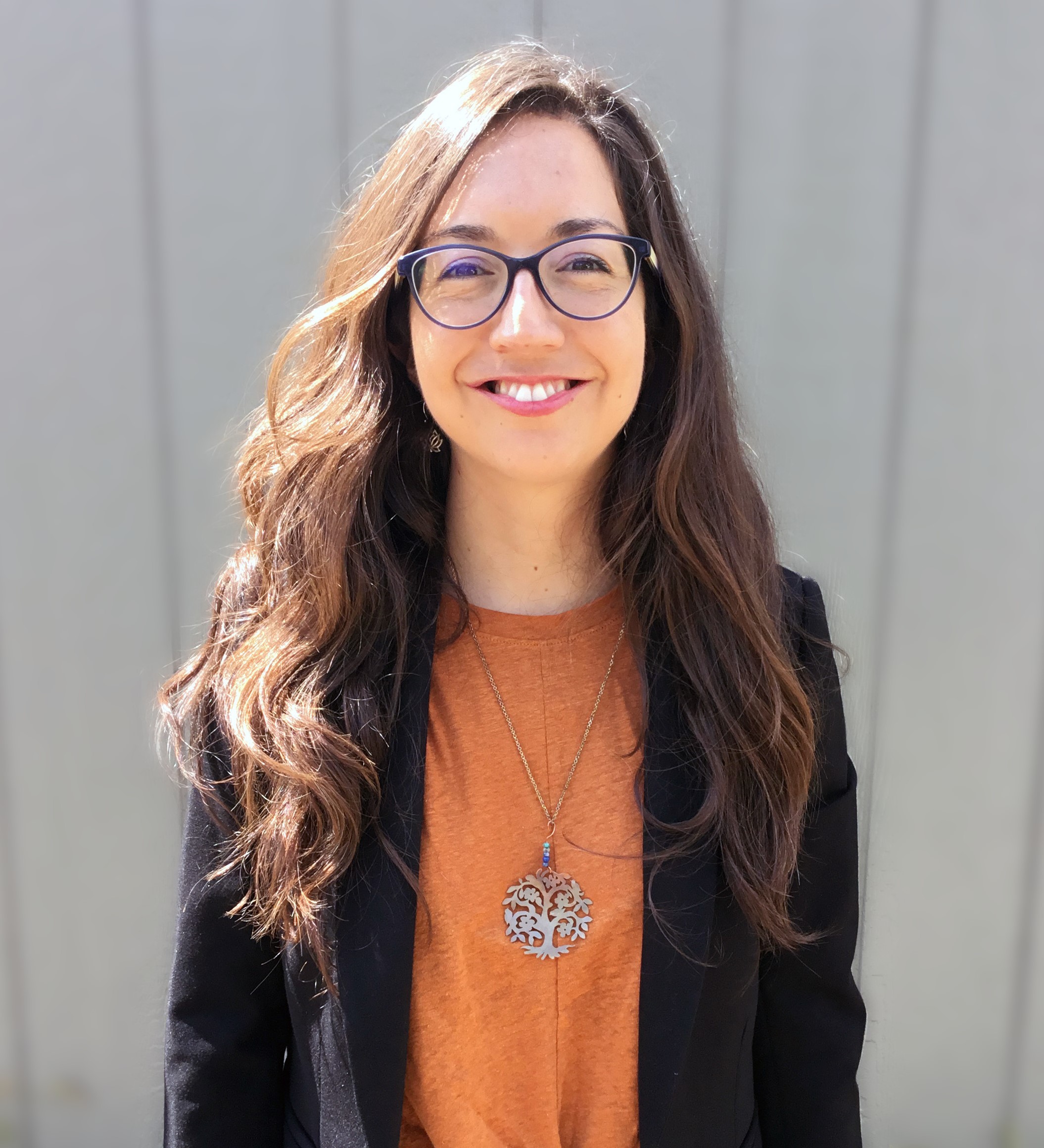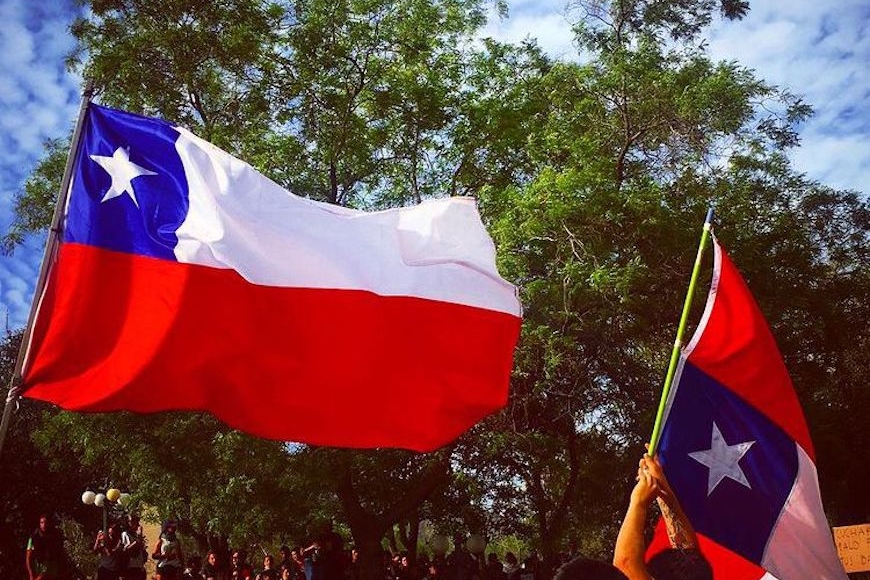A People-Centered Approach to Study and Advance Human Rights
Massive and sustained protests against inequality and perceived systemic injustice erupted in Chile in October 2019. One of the main demands was the drafting of a new constitution to replace the charter inherited from the Pinochet dictatorship. In collaboration with Professor Lisa Hilbink, I explored if and how the changing political context in Chile has affected the identity and capacity of lower-income Chileans to claim their rights.
I was born in 1988 in Chile, when the Augusto Pinochet dictatorship was still in place. For almost two decades, this regime committed massive human rights abuses with complete impunity, in a context in which the judiciary failed to protect people's rights and to provide justice. Since the return of democracy, several institutional reforms have been implemented in the country to improve the justice system. Chile is recognized internationally for its comparatively high levels of judicial independence and rule of law due to these reforms. However, those institutional improvements have not translated into commensurate improvements in the perceptions Chileans hold about these institutions, signaling a disconnect between the macro indicators of judicial improvement and their everyday lives.

I moved to the United States in 2016 to start the University of Minnesota doctoral program in Political Science. My motivation was to improve my theoretical and methodological skills to understand the gap between institutional improvements and the decreasing levels of citizen support for government institutions in Chile. In my first year in graduate school, my adviser, Professor Lisa Hilbink, invited me to collaborate in her first Human Rights Initiative project. This project sought to understand where the highly negative views about the justice system come from and how such views impact access to justice and rights-claiming behavior in the region.
Through an innovative focus group project implemented in Chile and Colombia, I was able to hear from 16 groups about what they would do (and why) if facing hypothetical but very common rights violations and their views and beliefs about justice institutions. Among the project´s several findings, we observed marked differences between the ways in which Colombians and Chileans in underprivileged groups talked about their rights and showed familiarity with where to turn and what to do when facing rights abuses. We found that marginalized Chileans tended not to understand justiciable events in terms of legal rights and did not know where to go to seek remedy, compared to Colombians. These findings suggest that the capacities to engage the justice system are not simply structurally determined but are also shaped by variations in the political context that empower or disempower citizens to claim their rights. But what specific political factors promote or inhibit people's decisions to turn to the justice system when needed?
Two years after we conducted this research, the above mentioned protests erupted, changing the political context dramatically. After four weeks of manifestations, in which the police committed human rights abuses against the protestors, congressional leaders achieved an agreement to open the path for a constitution making process. Since then, Chile has been engaged in a constitution making process, which is on track to produce Chile’s first ever democratically crafted constitution.
In this dynamic political scenario, and inspired by our focus group-based research, Professor Hilbink and I embarked on two new, related, projects. Under the auspices of the Minnesota Model for Human Rights and in collaboration with Chilean partners, we carried out a community-engaged project for legal empowerment in a municipality in Santiago, Chile. Throughout several online participatory sessions with mostly female leaders of “Neighborhood Security Committees,” we collaborated with the community in strengthening their capacities to use the law and justice institutions to protect and advance their rights.
In parallel, we proposed and won a second Human Rights Initiative grant to test the findings of our previous research and explore if and how the changing political context in Chile has affected the identity and capacity of lower-income Chileans to claim their rights. To do so, in May and June 2021, we conducted a nationally representative survey that asked participants their perceptions of and behavioral responses to hypothetical scenarios of rights violations, and probed for their political identity and participation before and after the social uprising. Our preliminary analysis shows that Chileans’ proclivity to claim rights is not determined by their socioeconomic status. Instead, such proclivity is strongly associated with people’s self-assessed knowledge of where to turn in a particular situation and with their participation in protests related to the ongoing constitution-making process. These findings suggest that processes of social mobilization and interventions aimed at empowering people to use the law can make a difference in advancing access to justice from the bottom up.
My participation in these different human rights-related projects at the UMN has equipped me with the theoretical and research tools to bridge different disciplines and methodological approaches to the study of human rights. Ultimately, it has also inspired my doctoral dissertation, which unpacks the political construction of people's beliefs and understandings of justice institutions in unequal democratic contexts such as Chile. Part of the 2021 Human Rights Initiative survey incorporated questions specifically designed for my dissertation to delve deeper into people's beliefs and to identify participants for follow-up qualitative interviews that I will be conducting this coming summer.
Finally, getting involved in these projects allowed me to join and work with the interdisciplinary UMN Human Rights community. Its faculty, graduate students, and staff have inspired me with their ethical commitment to producing high quality academic research that advances the rights of our communities, motivating me to build a research agenda that helps to inform a more people-centered approach to justice. While the law in democratic settings posits all persons as equal rights bearers, the willingness and capacities needed to claim those rights are unequally distributed in society. Advancing human rights thus requires not only top-down institutional reforms but also empowering people to claim their rights and hold their government accountable for human rights violations.
Photo of Chilean protests is by Gonzalo Zúñiga



